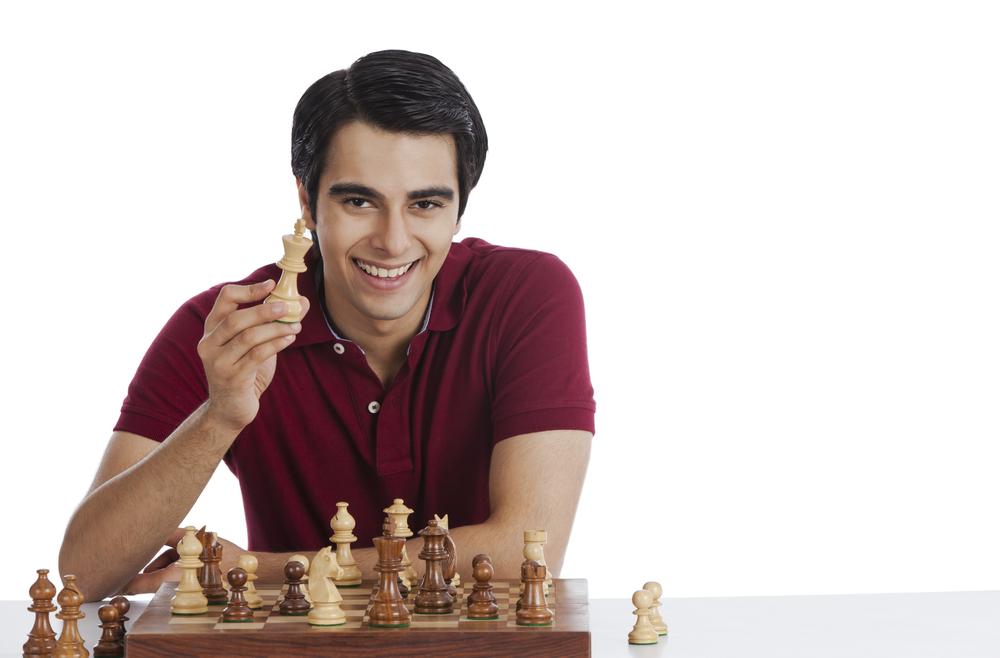
First You Smile, Then You Resign
Chess is a very complicated game that requires utmost concentration. Therefore most of the time chess players have a very serious facial expression.
I doubt that a fianchettoed bishop or a semi-open file would make many people laugh. Yet there is a certain positional element that inevitably makes chess players smile. Regardless of the rating or age, chess players start grinning whenever such a situation appears on a chessboard. I am talking about tripled pawns.
I remember the first time I had tripled pawns in my game. I was a little kid who cared more about joy of playing chess rather than the result of the game. So when my opponent threatened to triple my pawns I didn't prevent it, thinking "let's just see what happens."
Indeed, I had never seen such positions before and was curious to try something new. I don't remember the exact moves, but I believe that the game started like this:
When the tripled pawns appeared on the board, I started smiling and so did my opponent. Moreover, other kids who saw the position in our game smiled as well. Unfortunately the funny part of the game was over pretty soon for me. I was suffering the whole game and lost it at the end.
During our postmortem my opponent asked me why I allowed tripled pawns. I explained that they looked funny, so I wanted to try them just for the heck of it. My opponent gave me a strange look like I were crazy and then said, "well, at first you smiled, then you resigned!"
I think this phrase my opponent said in that childhood game describes tripled pawns very well. If you've read my series of articles about doubled pawns, you know that doubled pawns can be a liability or an asset, depending on the situation.

However, it is very difficult to find any positive side of tripled pawns besides the fact that they make people smile. Don't get me wrong; you can win a game having tripled pawns. Well, you can even win a game with quadrupled pawns!
But such wins usually have nothing to do with the tripled or quadrupled pawns. I would even say that those games are being won despite of tripled or quadrupled pawns! While I cannot name even one positive side of tripled pawns, there are so many disadvantages that you really want to avoid tripled pawns in your games.
I see one particular position with tripled pawns in scholastic tournaments on a regular basis. It happens in a very popular variation of the Scotch game.
Black's position is very bad since the c5 pawn is pretty much dead already. White is going to blockade Black's pawns by playing c2-c4 and then attack the c5 pawn with his knight.
The following short game is very popular in books on tactics since White executed an unusual double attack. I am sure you'll easily find the winning move:
While Black's quick loss in this game had nothing to do with his tripled pawns, in the following game it was indeed the c5 pawn that fell first:
The biggest problem of tripled pawns is not even that they are usually very weak. They create a fence in the way of their own pieces and therefore communications between the flanks gets disrupted.
Notice how in the following game the legendary grandmaster Lev Polugaevsky didn't even take that hopeless c5 pawn on move 27. He correctly envisioned that keeping all three black c-pawns would prevent his opponent from moving his pieces to defend his king. Indeed, Black's queen and knight got stuck on the queenside and the king was fighting against the opponent's army.

In the following Bobby Fischer game, tripled pawns created a fence that prevented their own king's escape!
The point: Tripled pawns should be avoided in most cases. Remember, with tripled pawns first you smile, then you resign!






